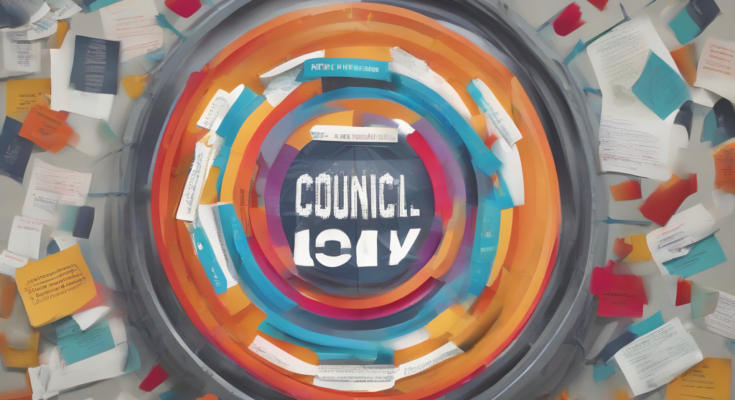Navigating the Path to Recovery: A Comprehensive Guide to Houston’s Council on Recovery
The journey to recovery from substance use disorder is a challenging yet achievable one. In Houston, Texas, the Council on Recovery plays a vital role in providing resources, support, and guidance to individuals and families seeking help. This comprehensive guide will delve into the various aspects of the Council on Recovery, exploring its services, impact, and the broader context of addiction recovery in Houston.
Understanding the Council on Recovery’s Mission and Scope
The Council on Recovery, a crucial component of Houston’s addiction treatment landscape, focuses on providing a network of support and resources for individuals struggling with substance abuse. Its mission extends beyond simply offering treatment; it aims to foster a supportive community and advocate for policies that improve access to effective care. This multifaceted approach encompasses several key areas:
- Connecting individuals with treatment options: The Council acts as a crucial bridge, connecting individuals seeking help with appropriate treatment facilities, considering their specific needs and insurance coverage. This is a crucial service, as navigating the complexities of the healthcare system can be overwhelming for someone already facing the challenges of addiction.
- Providing education and awareness: The Council plays a significant role in raising public awareness about substance use disorders, reducing stigma, and promoting education about prevention and intervention strategies. This includes community outreach programs and educational materials.
- Advocating for policy changes: The Council advocates for policies at the local, state, and national levels that improve access to treatment, funding for recovery services, and support for individuals navigating the justice system who are struggling with addiction.
- Supporting families and loved ones: The impact of addiction extends far beyond the individual struggling with substance use; families and loved ones often bear a significant burden. The Council offers support groups, educational resources, and guidance for those affected by a loved one’s addiction.
- Collaborating with other organizations: The Council fosters collaboration with various organizations involved in addiction treatment and recovery, including healthcare providers, law enforcement, and community-based organizations. This collaborative approach ensures a more comprehensive and effective response to the challenges of substance use disorder.
The Landscape of Addiction Treatment in Houston
Houston, like many large metropolitan areas, faces significant challenges related to substance use disorder. The city’s diverse population and complex social dynamics contribute to a wide range of addiction issues, necessitating a comprehensive and multifaceted approach to treatment and recovery. The Council on Recovery operates within this complex landscape, working collaboratively with other organizations to address the diverse needs of the community. This includes:
- Addressing opioid addiction: The opioid crisis has significantly impacted Houston, leading to a substantial need for treatment programs specializing in opioid addiction. The Council works to connect individuals with these specialized services.
- Tackling alcohol abuse: Alcohol remains a significant problem in Houston, and the Council provides resources and support for individuals seeking help with alcohol abuse and dependence.
- Combating substance abuse among vulnerable populations: Certain populations, such as young adults, homeless individuals, and those experiencing mental health issues, face heightened vulnerability to substance abuse. The Council works to reach these vulnerable populations with tailored support services.
- Providing services in multiple languages: Houston’s diverse population requires services offered in multiple languages to ensure accessibility and inclusivity for all community members.
- Utilizing evidence-based treatment approaches: The Council prioritizes the use of evidence-based treatment approaches, including medication-assisted treatment (MAT), cognitive behavioral therapy (CBT), and contingency management, to maximize the effectiveness of treatment.
Accessing Services Through the Council on Recovery
Individuals seeking help through the Council on Recovery can utilize several avenues to access services. The Council’s website often provides a comprehensive list of resources, including contact information for treatment centers, support groups, and other relevant organizations. It’s often possible to search for specific types of treatment or support based on individual needs and preferences. The Council may also offer direct referral services, connecting individuals with appropriate treatment providers based on their assessment of individual needs.
The process of accessing services may vary depending on individual circumstances. Factors such as insurance coverage, severity of addiction, and personal preferences influence the referral and treatment pathways. However, the Council aims to streamline the process, minimizing bureaucratic hurdles and ensuring accessibility for all those who need help.
The Importance of Ongoing Support and Aftercare
Recovery from substance use disorder is not a one-time event; it’s an ongoing process requiring consistent support and commitment. The Council on Recovery recognizes the critical role of aftercare in maintaining long-term sobriety. Aftercare services may include:
- Support groups: Continuing participation in support groups, such as Alcoholics Anonymous (AA) or Narcotics Anonymous (NA), provides crucial ongoing support and a sense of community.
- Therapy and counseling: Regular therapy and counseling sessions help address underlying issues that may contribute to relapse and maintain long-term mental health well-being.
- Medication management: For individuals requiring medication-assisted treatment, ongoing medication management is essential to support recovery.
- Life skills training: Developing life skills such as budgeting, job searching, and relationship management can significantly contribute to long-term stability and recovery success.
- Housing and employment assistance: Securing stable housing and employment is vital for long-term recovery, and the Council may provide resources to assist individuals in these areas.
The Council’s Role in Reducing Stigma and Promoting Understanding
One of the most significant challenges in addressing substance use disorder is the stigma surrounding addiction. The Council on Recovery plays a crucial role in combating this stigma through education and awareness campaigns. By promoting open conversations about addiction, the Council helps to de-stigmatize the issue, encouraging individuals to seek help without fear of judgment or discrimination. This includes:
- Public awareness campaigns: The Council conducts public awareness campaigns to educate the community about substance use disorders, the effectiveness of treatment, and the importance of seeking help.
- Community education programs: The Council may offer community education programs in schools, workplaces, and community centers to raise awareness and prevent substance abuse.
- Collaborating with media outlets: The Council works with media outlets to disseminate accurate information about addiction, correcting misconceptions and promoting understanding.
- Supporting individuals sharing their stories: Sharing personal recovery stories can be incredibly powerful in reducing stigma and inspiring others to seek help.
- Advocating for policies that promote inclusivity: The Council advocates for policies that ensure equitable access to treatment and support for all individuals regardless of background or circumstances.
The Council’s Impact on the Houston Community
The Council on Recovery has a significant positive impact on the Houston community by providing much-needed resources and support for individuals and families struggling with substance use disorders. This includes:
- Improved access to treatment: The Council’s work ensures more individuals have access to effective treatment and reduces barriers to care.
- Reduced healthcare costs: Early intervention and effective treatment can reduce the long-term healthcare costs associated with untreated addiction.
- Increased public safety: Addressing substance use disorders can contribute to improved public safety by reducing crime and related health issues.
- Improved economic productivity: Supporting individuals in their recovery can lead to increased economic productivity through employment and reduced healthcare costs.
- Strengthened families and communities: Supporting families and loved ones affected by addiction strengthens family units and builds more resilient communities.
The Future of the Council on Recovery
The Council on Recovery continues to adapt and evolve to meet the changing needs of the Houston community. As the landscape of addiction treatment continues to evolve, the Council remains committed to providing cutting-edge resources and support. This may involve embracing new technologies, expanding services to underserved populations, and continuing to advocate for policy changes that improve access to care. The ongoing dedication to providing comprehensive and effective services is vital for the well-being of Houston residents.

